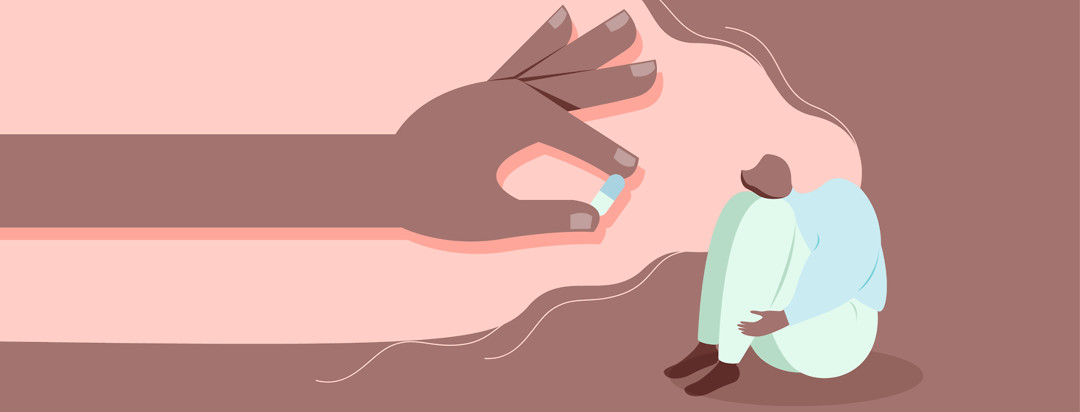Why I Quit Painkillers
Almost 3 years ago, I quit taking painkillers. I first began taking them during my teens. I couldn’t go to school clutching my hot water bottle, and apparently being pulled up into a class Cleopatra-style - in one’s bed, with heaps of eyeliner - was also unacceptable.
My first painkilling mechanisms came in the form of small doses of paracetamol (acetaminophen). However, overtime, my period pains worsened. That’s when I discovered ibuprofen. It soon became a staple in my purse. I never went without it. It was the only way I could sit through exams, like a normal, functioning person.
When I started working, I discovered stronger versions of the anti-inflammatory, which was the only form of medication that enabled me to turn up at work when on my period. Then in 2009, I developed some bad issues with my back and hips, linked to my endometriosis. I increased my ibuprofen so much that the only way to procure the higher dosages was to travel abroad to get the pills with no medical prescription. Friends or family would bring them as a gift to me whenever they visited.
On such high doses of ibuprofen, unsurprisingly, I developed some rather unpleasant stomach issues.
Doctors had warned me about the amounts I was taking, but with the levels of pain I was in, I felt like I had no other option. Even the anti-acids and stomach-liners they recommended gave me nausea. I tried other forms of medication, such as codeine, but nothing really worked.
Overtime, I developed digestive issues and struggled when eating certain foods. I suffered painful cramps almost daily. After speaking to many doctors, and doing my own research, it all pointed to a link between gut disorders and ibuprofen. Apparently, consuming this type of painkiller long-term is connected to gluten intolerance.1
These side-effects made me see the writing on the wall. It was time to quit.
It definitely wasn’t an easy decision. Ibuprofen is very effective at reducing pain, but I simply couldn’t carry on taking the pills like they were jelly beans. On top of the awful side-effects, getting my endometriosis diagnosis sealed the deal. I had a chronic disease, and thinking about self-self-medicating for the rest of my life was a sobering though.
It is not something I would recommend to everyone.
The weekend I decided to quit painkillers, I suffered a horrific flare-up, with crushing levels of pain. Not having any medication around, left my pain completely exposed. I cranked up my TENS machine, took some CBD, and felt more bed-bound than ever.
Being painkiller-free definitively comes at a price
Going without ibuprofen severely interferes with my life. It involves a lot of bed rest, and a lack of mobility that is very frustrating. I also doubt I would be able to hold down a regular job. I don’t think I could get away with 4 (or more) sick days every month. To manage this, I work form home, but my income is severely limited.
Going painkiller-free was a personal decision that meant choosing gut health over comfort and convenience. I did it after extensive research, discussing my options with health professionals, and designing a new way of life that has involved a lot of sacrifices.
Community Poll
Have you told your employer about your endometriosis diagnosis?

Join the conversation